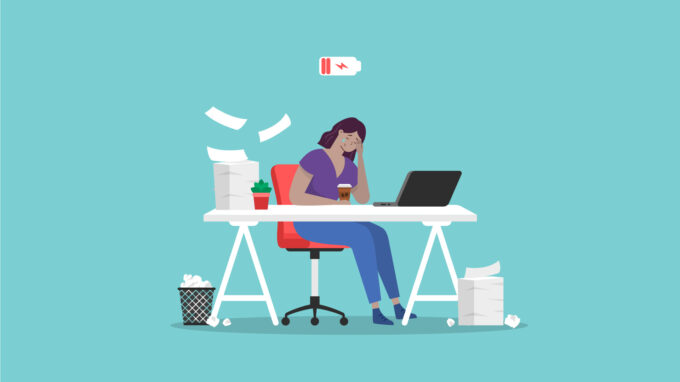
Can We Avoid Burnout?
We often use the term “burnout” as a vague label for an exhausting day or week of hard work, but actual burnout is more than

In the wake of global racial injustice protests and health disparities of COVID-19, depression and anxiety have more than tripled in Black and Latinx communities. To effectively deliver on workplace commitments to diversity, equity and inclusion in the workplace, employers must ensure their employees have the access they need to adequate mental health support.
Now more than ever, people are thinking about their mental health and how to improve it as we head into winter. The intersection of pandemic anxieties and experiences of discrimination tells us our vulnerable populations are at increased risk at this time.
A study by The Centre for Addiction and Mental Health found “women, people who have lost their jobs as a result of the pandemic, those who are worried about their personal finances, people with children at home, and young people are more likely than others to experience symptoms of anxiety and depression at this time”.
In addition, workers providing a range of essential services are on the frontlines of the COVID-19 pandemic and may be at an increased risk of severe mental health difficulties if not provided with the personal protective equipment and psychosocial supports they need to stay safe; the essential workforce is largely composed of Black and Latinx employees.
Even further, immigrants, refugees, and members of distinct ethnocultural groups often experience discrimination, language barriers, and a sense of displacement. These factors can greatly affect a person’s wellbeing and prevent awareness of available mental health services and supports. As a result, many people do not seek treatment for a mental health problem or mental illness right away.
Here are three resources you can use to support your diverse employees and their mental health — and your own:
By addressing these challenges now, you will be able to better navigate the aftermath of the pandemic on mental health. It’s likely effects on mental health from the virus will last long after the pandemic subsides, so continuing to step up as a decision-maker and make mental health a priority will help you and your organization be better prepared for the months ahead.
Looking to learn more about how to improve your mental health? Read our blog post and join the mailing list for our weekly Sunday Snippets newsletter to stay up to date on best practices for diversity, inclusion and equity in the workplace.

We often use the term “burnout” as a vague label for an exhausting day or week of hard work, but actual burnout is more than

At Dialectic, we think a lot about DEI, soft skills, and leadership training that makes organizations more inclusive and human-friendly. When we team up with

Ageism commonly affects women over 40 in the workplace. In spite of their tremendous wisdom and experience, women over 40 may be passed over for
Dialectic helps organizations improve the way people work, learn, and collaborate through person-centred design and the latest in social science.

Does your team struggle with soft skills?
Use our app or upload Snippets to your LMS to build better habits in minutes with scenario-based microlearning.
Sign up for our weekly roundup of the latest on DEI, leadership, collaboration, and learning science.
© 2024 Dialectic. All rights reserved. | Contact Us | Privacy Policy | Terms of Use | AODA Statement
See how easy it is to activate soft skills in your organization. Soft skills training on 3 key topics: DEI, Leadership, and Collaboration.